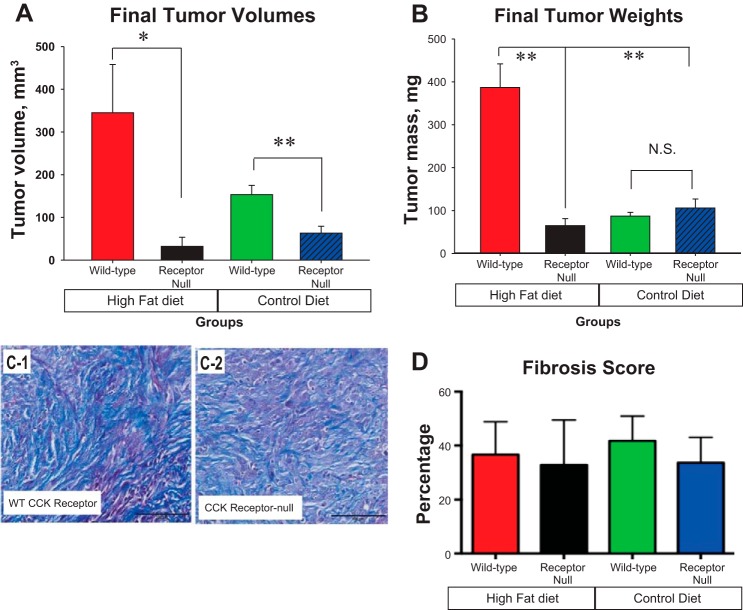Fig. 4.
Panc02 tumor cells lacking CCK-ARs do not respond to dietary fat in mice fed a high-fat diet. A: tumor volumes were significantly greater in mice on the high-fat diet with CCK-WT receptors compare with mice on the high-fat diet without the CCK-ARs (*P = 0.038; n = 10 mice per group) at the termination of the experiment on day 42. Receptornull tumor volumes were also smaller in mice on the control diet than the mice with intact CCK-R on the control diet (**P = 0.009). B: weights of WT Panc02 tumors of mice on a high-fat diet were 6-fold greater than tumors from the mice on the high-fat diet lacking the CCK-AR (**P = 0.002) and 4.5-fold greater than mice on the control diet (**P = 0.01). C-1: trichrome stain shows extensive intratumoral fibrosis from a representative tumor of a mouse on the high-fat diet with WT CCK-ARs. C-2: significant fibrosis in stroma of the CCK-Receptornull tumors from a mouse on the high-fat diet. D: fibrosis score: With objective analysis, there was no difference between the fibrosis in the tumors regardless of cancer cell CCK-R status. Bar = 100 μm. CCK-R, cholecystokinin receptor; receptornull, CCK-AR knockout cells; WT, wild-type.

